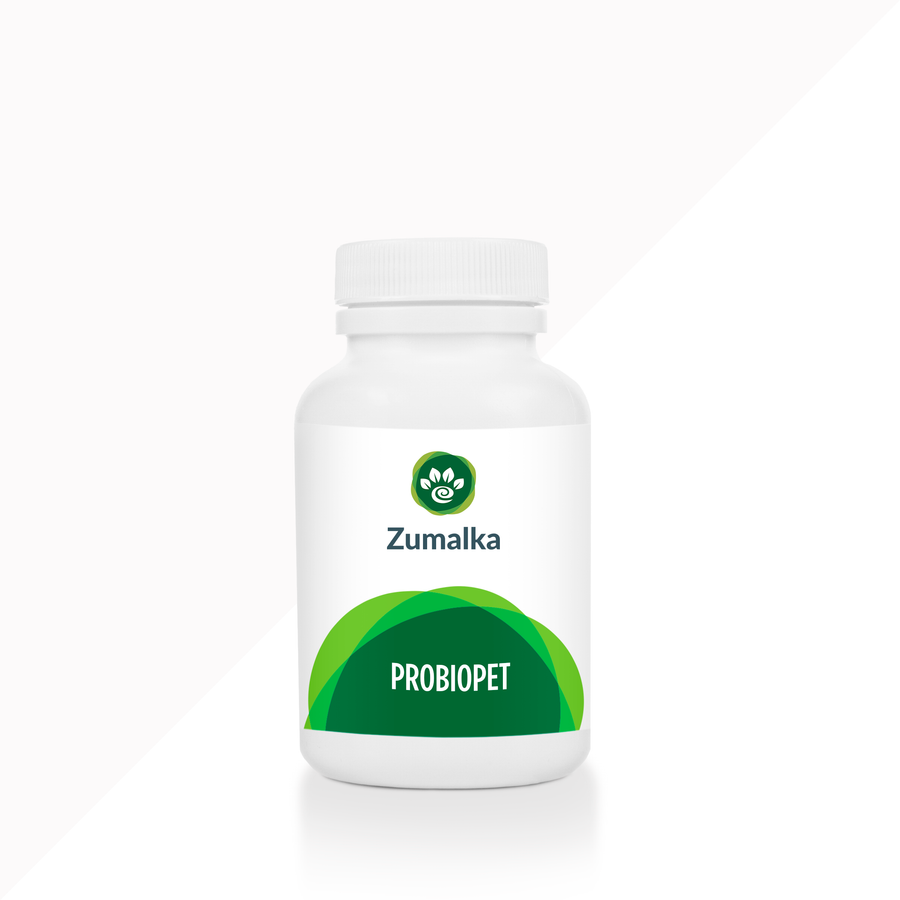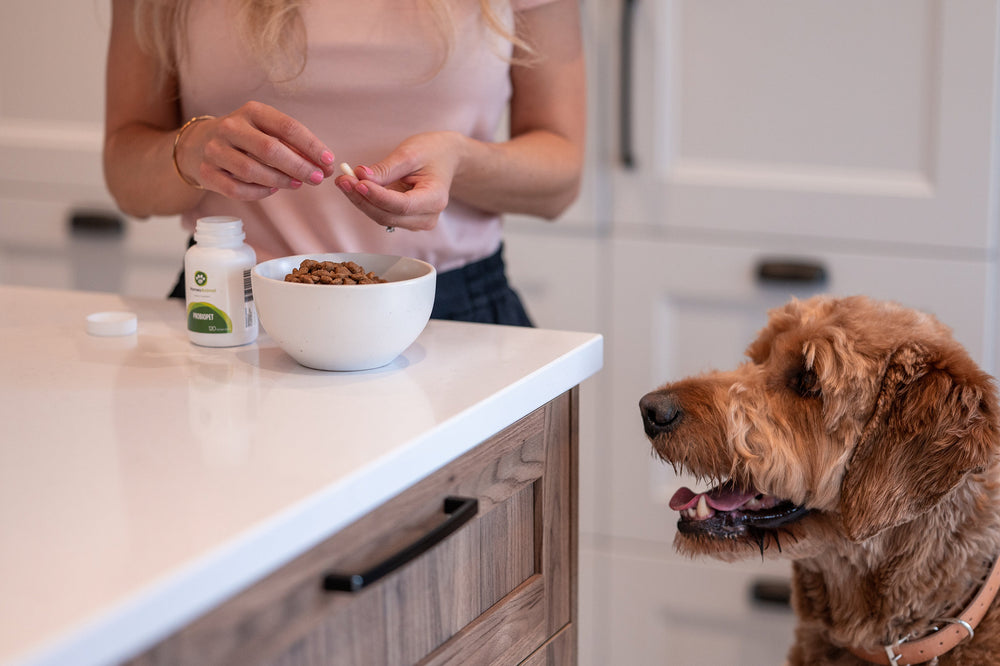Expert Insights: 11 Key Questions to Ask Your Pet Nutritionist for a Healthier Pet
List of Contents
Feeling overwhelmed by endless pet food options, conflicting advice, and confusing ingredient labels? You’re not alone. Navigating your pet’s nutrition can be challenging. Choosing the right diet is essential to support your pet’s health, vitality, and long-term well-being.
The pet food market is crowded with flashy marketing and confusing labels, making it difficult to discern true quality. Even popular pet food rating sites often rely more on opinion than science, leaving pet owners unsure of what to trust.
A certified pet or veterinary nutritionist provides tailored, science-based advice to meet your pet’s specific nutritional needs at every life stage. Their expert guidance supports disease prevention, improves health outcomes, and promotes long-term well-being.
This guide outlines 11 essential questions to ask a pet nutritionist so you can make informed, confident choices about your pet’s diet. With the right guidance, you’ll support your pet’s health, longevity, and overall well-being.
The Value of a Pet Nutritionist: Going Beyond the Food Bag

Pet nutritionists are experts in animal nutrition, often holding degrees in animal or veterinary science. Many also earn specialized certifications, such as those from the American College of Veterinary Nutrition (ACVN), ensuring science-backed dietary guidance for pets.
Moreover, pet nutritionists can develop personalized diet plans tailored to your pet’s age, breed, weight, activity level, and health conditions. These customized plans help ensure optimal nutrition and support long-term health and wellness.
Additionally, pet nutritionists look beyond pet food labels to assess the true quality and nutritional value of a diet. Their expertise helps you choose the most suitable food to meet your pet’s specific needs.
11 Essential Questions to Ask a Pet Nutritionist

While many people assume choosing a pet nutritionist is straightforward, it’s a decision that deserves careful thought. Asking the right questions can help ensure your pet gets the expert guidance they need for long-term health and well-being.
#1. What are your qualifications, educational background, and professional experience in pet nutrition?
Why it matters: Understanding a pet nutritionist’s education and credentials helps verify their expertise. Look for degrees in animal or veterinary science, certifications from organizations like the ACVN, and hands-on experience with diverse pets or specific health conditions.
#2. How do you create a personalized diet plan for my pet, taking into account factors like age, breed, weight, activity level, and any health conditions?
Why it matters: Every pet has unique nutritional needs, so a one-size-fits-all approach won’t work. A qualified nutritionist will assess your pet’s medical history, current diet, and lifestyle to create a tailored nutrition plan that supports their overall health.
#3. Do you work with various diet types (such as kibble, wet, homemade, or raw), and what is your overall philosophy on these options?
Why it matters: With so many pet diet options, kibble, wet, homemade, or raw, it’s important to understand your nutritionist’s experience with each. Their guidance should be evidence-based, especially if you prefer specialized diets like raw feeding. Be cautious of those who approach without scientific support.
#4. How do you ensure that the diets you recommend meet AAFCO standards and provide complete, balanced nutrition?
Why it matters: AAFCO sets the benchmark for complete and balanced pet nutrition in the U.S. Diets that meet these standards, especially those validated through AAFCO feeding trials, help ensure your pet receives safe, scientifically backed nutrition.
A qualified nutritionist should ensure their recommendations meet AAFCO standards, ideally by using a complete nutrient analysis of the finished product, not just the recipe. They should also clearly explain how they achieve and verify overall nutritional balance in your pet’s diet.
#5. Do you conduct or reference peer-reviewed research to support your nutritional recommendations?
Why it matters: Pet nutrition is a rapidly evolving field, and staying up to date with peer-reviewed research is essential. A reputable nutritionist relies on scientific evidence, not fads or trends, to guide their recommendations. This reflects a commitment to delivering accurate, effective, and up-to-date nutritional care for your pet.
#6. What quality control practices and ingredient sourcing guidelines do you follow, especially when recommending homemade or raw diets?
Why it matters: Quality control is essential to ensuring your pet’s food is safe, consistent, and nutritionally complete. For homemade or raw diets, a knowledgeable nutritionist should provide clear guidance on sourcing high-quality ingredients and handling them safely. This helps prevent contamination, foodborne illness, and nutrient imbalances.
#7. How do you tailor a diet to address my pet’s specific medical conditions, such as obesity, allergies, or diabetes?
Why it matters: Diet directly affects chronic conditions like obesity, diabetes, and allergies, making tailored nutrition essential for effective management. A skilled nutritionist should clearly explain how specific foods support your pet’s health and which options to avoid. For example, some grain-free diets have been linked to heart issues in certain dogs and may not be appropriate.
#8. Do you recommend supplements for pets, and if so, which types and for what reasons?
Why it matters: Most commercial diets that meet AAFCO standards are nutritionally complete and don’t require additional supplements. However, a qualified nutritionist may recommend specific supplements to address individual health needs or deficiencies. These recommendations should be evidence-based and carefully balanced to avoid potential nutrient imbalances.
#9. Can you provide specific calorie requirements and portion control guidance tailored to my pet?
Why it matters: Managing your pet’s weight is essential to preventing obesity and related health problems. A knowledgeable nutritionist can calculate precise calorie needs and provide portion recommendations tailored to your pet’s age, size, and lifestyle. This ensures your pet receives the right amount of food for balanced, long-term health.
#10. How do you communicate with clients, and what does your follow-up process include?
Why it matters: Clear communication is essential for building a strong, ongoing relationship with your pet nutritionist. Ask how they handle follow-up, monitor your pet’s progress, and adjust the diet as needed. It’s also important to understand their availability, preferred communication methods, and whether follow-up support comes at an additional cost.
#11. How do you take budget and time constraints into account when recommending a diet?
Why it matters: The best diet for your pet is one you can consistently maintain within your budget and daily routine. A qualified nutritionist will recommend practical, balanced options that align with your lifestyle, and suggest alternatives when needed. Remember, higher cost doesn’t always mean higher quality. What matters most is nutritional value and sustainability.
Interpreting Pet Nutritionist Responses: Red Flags and Green Lights

Be cautious of any nutritionist who avoids giving clear, detailed answers to your questions. Oversimplifying complex nutritional issues or dismissing concerns without scientific support can signal a lack of expertise. Transparency and evidence-based guidance are essential for trustworthy pet nutrition advice.
A trustworthy pet nutritionist will communicate with confidence, explain their recommendations clearly, and tailor advice to your pet’s specific needs. Look for someone who relies on scientific evidence and welcomes your questions. Transparency and a personalized approach are strong signs of expertise and professionalism.
The Role of Probiotics in Your Pet’s Health and Well-Being
Proper digestion is essential for your pet to absorb vital nutrients, and that’s where probiotics play a key role. However, not all probiotics are equal. Choosing the right strain and formulation is crucial for real health benefits.
Zumalka’s PROBIOPET is a high-quality probiotic formulated to help support optimal gut and immune health in pets. Its active ingredients help stabilize digestion, making it an excellent choice for maintaining your pet’s overall wellness.
Unlike many other probiotics, PROBIOPET doesn’t require refrigeration, thanks to its naturally stable, high-quality formulation. This convenient and effective supplement helps support digestive balance and boost your pet’s immune health.
A Final Word
Choosing the right diet is one of the most important steps you can take to support your pet’s long-term health and well-being. By asking the 11 essential questions outlined above, you’ll be better equipped to identify a qualified pet nutritionist who offers expert, personalized guidance. Investing in informed nutrition today means a healthier, happier life for your pet tomorrow.
Begin by speaking with your veterinarian or pet homeopathy specialist. They can offer valuable insight or refer you to a qualified pet nutritionist. Consulting with a veterinarian or homeopath can provide essential guidance when choosing the right diet.
Diet and remedies work best when they complement each other, not conflict. A tailored consultation ensures both are aligned to support long-term health. Since digestive issues are often linked to allergies or sensitivities, identifying them early helps in selecting the most effective nutritional plan.
Doing your research and asking informed questions helps ensure your pet receives safe, personalized nutritional care. The right diet can make all the difference in supporting a longer, healthier, and more vibrant life for your pet.
FAQs
What are good questions to ask a nutritionist?
Good questions include: What are your qualifications? Do you tailor diets for medical needs? How do you ensure nutritional balance? Do you follow AAFCO guidelines? What’s your stance on raw or homemade diets?
What to know about pet nutrition?
Pet nutrition is essential to your animal’s overall health. Balanced diets should match their age, breed, activity level, and medical needs. Always consult a veterinarian or certified nutritionist for evidence-based, personalized feeding guidance.
What questions to ask when looking for a veterinarian?
Ask about their experience, areas of specialization, emergency protocols, approach to preventive care, and communication style. It’s also helpful to know their stance on nutrition, vaccination schedules, and how they handle follow-up care.
What do you think is the most important factor to consider when selecting your pet's diet?
The most important factor is ensuring the diet is complete, balanced, and appropriate for your pet’s age, breed, activity level, and health status. Personalized guidance from a veterinarian or certified pet nutritionist is key.
How to prepare for a meeting with a nutritionist?
Bring your pet’s medical history, current diet details, supplements, and any recent lab results. Prepare questions about goals, feeding routines, and concerns to help your nutritionist create a personalized, effective nutrition plan.
What are common nutritionist interview questions?
Common questions include: What are your qualifications? How do you personalize diet plans? Do you follow AAFCO guidelines? What’s your experience with specific health conditions? How do you ensure balanced, evidence-based nutritional recommendations?









Hi Ann,
Thank you for your comment!! We are always happy to work with fellow animal lovers like you to improve the health of our furry friends.
We have new remedies that are special mixes of vitamins or minerals that can also be beneficial for your pet’s overall health.
We have sent you a private email so we can work with you and see what the best options are to target your pet’s specific needs.
Warm regards,
Homeoanimal
I STARTED MAKING MY OWN FOOD FOR MY SCOTTISH TERRIER I WANTED TO KNOW ABOUT VITAMINS AND MINERALS. AFTER DONG RESEARCH AND TALKING TO A HOLLISTIC VET, I WAS ADVISED TO ADD KELP (THORVIN KELP) AS THE MINERALS AND I LIKE THE VITAMINS FOUND IN A BLEND CALLED ZESTFOR CAN YOU GIVE ME ADVICE AS WELL. THANK YOU
Leave a comment